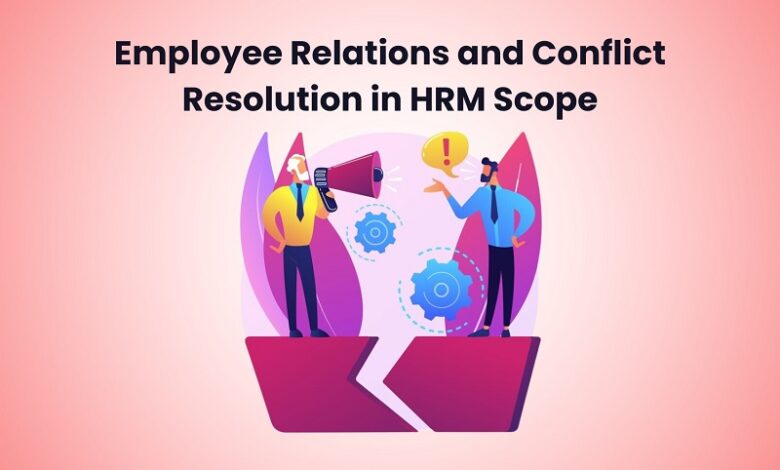
Employee Relations and Conflict Resolution in HRM Scope
Strong employee relations and skilful dispute resolution are critical components of Human Resource Management (HRM) that firms must embrace as they navigate the modern business. When varied abilities come together in the workplace, HR experts create a positive atmosphere and efficiently resolve disputes. In this blog, we discuss best practices, the changing HR Courses landscape, and the subtle nuances of employee interactions and dispute resolution within the broad Scope of Human Resource Management.
Understanding Employee Relations in HRM
Employee interactions are the cornerstone of a happy and productive staff. Building a good working relationship between employers and employees is crucial to HRM. This entails establishing an atmosphere that values honesty, confidence, and understanding between people. Equipped with knowledge acquired from extensive HR courses, HR specialists facilitate establishing a strong employer-employee connection.
Conflict Resolution in HRM
Because employees come from a variety of backgrounds and viewpoints, conflicts in the workplace are unavoidable. In this case, HRM’s purview goes beyond the everyday to include the skill of dispute resolution. Comprehensive HR training gives HR professionals the skills they need to manage and resolve conflicts productively. A proficient ability in conflict resolution sets apart a successful human resources manager, be it small-scale interpersonal conflicts or more significant organisational problems.
The Role of HR Courses in Developing Proficiency
HR workers need the knowledge and abilities to handle the intricacies of employee interactions and conflict resolution, and these courses are essential in providing them with this expertise. These courses explore the psychological dimensions of human behaviour in the workplace, offering valuable perspectives on the complexities of motivation, communication, and team dynamics. Equipped with this understanding, human resources specialists may anticipate possible problems ahead of time, cultivating a happy workplace.
Strategies for Effective Employee Relations
Healthy employee relations require a strategic strategy that extends beyond the simple application of rules. HR practitioners use a variety of tactics within the broad domain of HRM to foster constructive relationships. This entails setting up systems for employee appreciation, feedback outlets, and frequent channels of contact. HR courses strongly emphasise the value of promptly addressing concerns to ensure that possible problems are caught early.
HR specialists must be skilled at weathering disagreements when they occur. The breadth of HRM necessitates a systematic approach to dispute resolution. Making a space that encourages candid communication is one helpful tactic. HR professionals can assist with talks that result in positive outcomes using their active listening and mediation abilities. Furthermore, establishing well-defined protocols for resolving conflicts facilitates the process and guarantees equity and openness.
The Evolving Landscape of HRM
The application of HRM in the company is dynamic. HR specialists must adjust to shifting global trends, workplace demography, and technological advancements. Professionals taking HR courses with a modern focus are more equipped to handle the difficulties a quickly evolving environment presents. Effectively resolving new issues in employee relations and conflict resolution requires this flexibility.
Legal Considerations in HRM
Legal issues play a crucial role in employee relations and conflict resolution within the broad domain of HRM. In order to make sure that their plans comply with legal frameworks, HR professionals need to be up to date on employment rules and regulations. HR programs incorporating legal elements reduce the risk of labour conflicts by offering insightful information about compliance.
Fostering a Culture of Collaboration
In HRM, building a collaborative culture becomes essential to successful employee relations and conflict resolution. The collaborative mindset helps to avoid future disagreements in addition to improving teamwork. The development of this culture—which promotes open communication, cross-functional involvement, and a feeling of purpose—is emphasised in HR courses. Conflicts are lessened, and the foundation for amicable dispute settlement is established when staff members feel connected to one another. A productive and peaceful workplace is sparked by this collaborative mindset that HR courses impart.
Conclusion
In conclusion, employee relations and conflict resolution within HRM necessitate a diverse skill set. Equipped with knowledge from extensive HR courses, HR professionals can handle the complexities of work environment dynamics. In the dynamic world of the modern workplace, HR managers play a critical role in a firm’s general well-being and prosperity through cultivating strong employee interactions and skilfully resolving problems.





